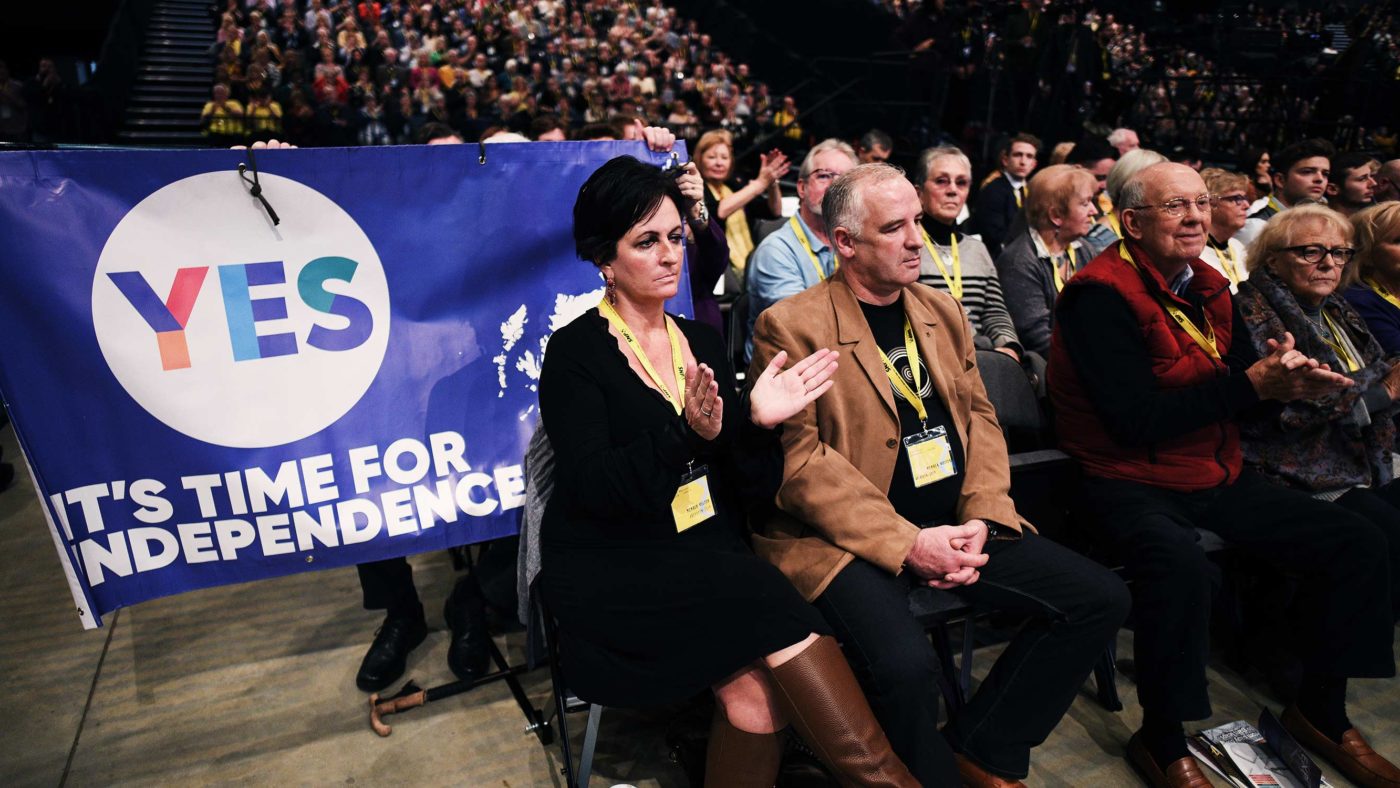Prior to the Scottish elections, there was for a time good reason for even jaded pessimists to suspect that the scandal over the mishandling of allegations against Alex Salmond might fatally injure Nicola Sturgeon.
The First Minister had a lucky escape (although given she missed out on a majority by just one seat, perhaps not lucky enough). But her party’s problems haven’t gone away.
Yesterday the Sunday Times reported that the police had opened an investigation into the Scottish National Party over allegations of fraud. The central claim is that a £600,000 fund that was supposed to be ring-fenced to fight the next independence referendum has been spent on other things.
It is not for anybody to pre-judge whether or not anything criminal has taken place. But if the fighting fund has been spent, that tells us quite a lot, whether it was done legally or not.
The main thing it would suggest is that the Nationalist leadership, whatever they tell their grassroots, are not anticipating another referendum on independence anytime soon.
As a matter of analysis, this is perfectly sensible. The Prime Minister has no reason, practical or moral, to give the SNP another chance to tear this country apart less than ten years since their last once-in-a-generation shot. But such revealed expectations undermine the party’s bullish rhetoric, and there are two audiences that ought to take note.
The first are separatist activists in the ‘Yes Movement’. Alex Salmond may not have managed to achieve the breakthrough he wanted with his schismatic Alba Party in May, but there remain deep divisions between the SNP about independence strategy (and much else).
Sturgeon has to date managed to keep this increasingly fractious coalition corralled behind her with the tantalising promise of an imminent campaign. Will she be able to sustain this if the investigation reveals that her government is not only not preparing for one, but has actively run down the cash reserves levied to wage one?
On that point, such a finding could also damage trust between ordinary nationalists and the SNP. Even if everything was legally proper, many will have given money on the understanding that it was going into a referendum war chest. If it turns out to have been spent on the office refurbishment, will they donate again? One big-money SNP donor, lottery winner Colin Weir, already reportedly demanded his money back in 2019, prior to his death.
The other audience who ought to be paying attention is the Government in London. For it would be more evidence that the SNP, and indeed Scottish nationalism more widely, are not the unstoppable forces that some commentators imagine.
Far from boosting the SNP, the current strategy of holding the line against a second vote has the Nationalists on the defensive. For once, pressure is on the separatists and it is the unionists, via legislation such as the UK Internal Market Act (and all the schemes it can authorise) and the Subsidy Control Bill, who are setting the agenda. This is a very welcome change.
Yet the story should also be a call to arms – specifically, reports that the Crown Office intervened to try and water down Police Scotland’s intervention:
“The Sunday Times has been told that police officers were “stunned” by the position taken by the prosecution service. One source said that police officers and the Crown Office were “at loggerheads” before the force’s announcement this month that it was opening a formal investigation, having conducted initial inquiries into complaints alleging fraud.”
The neutrality of the Crown Office also came under the spotlight during the inquiry into the Salmond scandal. Whilst the source quoted in the Sunday Times report may be wrong, there is no denying that the SNP have used their long stranglehold on the Scottish Government to cast a long shadow over civil society north of the border. Stories such as this suggest that this is having a corrosive effect on, at the least, public trust in key institutions.
For too long, the ‘devolve and forget’ model pursued by successive governments at Westminster has allowed devocrats in Edinburgh (and elsewhere) to reshape the local state and evade scrutiny for their running of it. Rejecting this mindset must not only involve new initiatives and new money – what has been sometimes dubbed ‘devolve and compete’ – but also rebuilding Parliament’s legitimate oversight function for all the devolved institutions that exercise delegated powers.
That can include anything from tasking the Office for National Statistics to compile uniform, cross-comparable data on public sector performance on a nationwide basis to making sure that the Civil Service Code is properly enforced in Scotland (which does not have a separate civil service).
It ought also, surely, to include protecting the integrity and public image of the Crown Office, should that be necessary.
Click here to subscribe to our daily briefing – the best pieces from CapX and across the web.
CapX depends on the generosity of its readers. If you value what we do, please consider making a donation.


